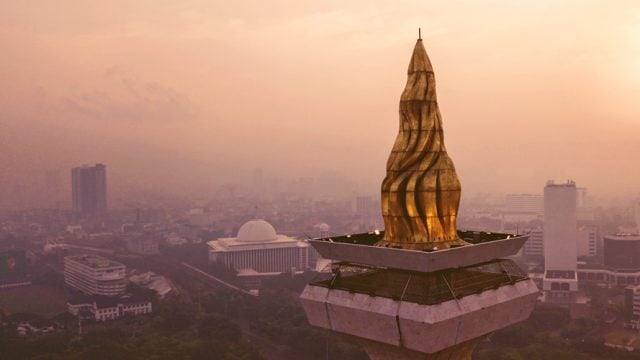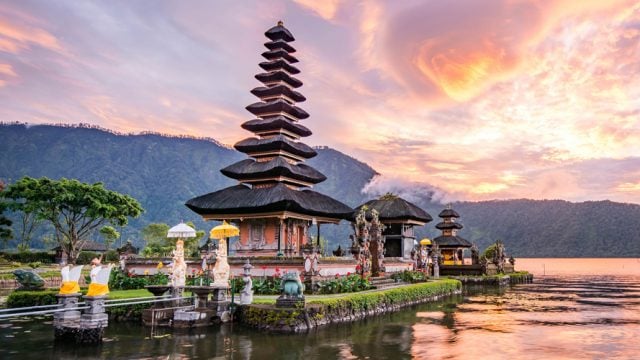The title of this warm, generous and always unsentimental book illustrates both theme and conceit. It
Then, there is the rich confusion of ethnicity, language and religion that such a geographical scattering inevitably comes with. Add its oceanic setting — even today, the only way between many islands is by boat — and the freight of inequitable trade and colonialism, and you have a recipe for modern nation-state disaster. And yet, somehow, it endures. Elizabeth Pisani set out on an epic year-long journey to see why. She travelled by boat and road and plane, frequently relying on the generosity of strangers for room and board. She attended sacrifices, marriages and the occasional funeral; endured cross-questioning about her age, marital status, children and sexual availability; was propositioned, ignored, cheered and chastised: all so she could see where the ‘etc.’ led.
She isn’t shy of tackling the big questions. The issue the other islanders have with what they perceive to be Javanese dominance runs through the book, because she reaches Java, the most populous of Indonesia’s islands, last.
She takes on the burning debate between “development” and the rights of people on the ground. Forthrightly — and interestingly, since she earned her spurs in public health policy — she makes it clear that it isn’t quite as easy as small tribals/indigenous/disadvantaged versus big business. The nuances she isolates in that particular instance point to her great strength, which is that she is that rare ‘foreign’ traveller who collects insights and not just impressions. Her insights illumine this book, not least in the section where she takes on the role of the religious parties in what is currently the very tangled web of Indonesian democracy.
She is also an astute observer of how patronage in the Indonesian context mirrors the clan or familial structure that country’s citizens are already familiar with. That mirroring enables the distinction the recipients of patronage can make between what they’re receiving, and outright corruption. Indians will recognise the ‘distinction’, of course. It made me wince.
For the most part, she answers her own questions, though I find her analysis of the new Islamic revivalism in Indonesia a little waffle-y. Perhaps she feels she isn’t in a position to judge; at any rate, it doesn’t detract at all from what is a marvellously observed, warmly reported, and frequently genuinely funny book. Her interest in and love of her subject is clear. As with the best books about distant places, she makes you want to go.
Related Stories

5 Things To Do In Jakarta During The Upcoming Asian Games
Although cheering on the athletes at the Asian Games is an activity in itself, there’s a lot more to explore in Jakarta. Here are five things to do from visiting a historic cemetery to eating your way through the streets

Five Reasons Why You Must Visit Bali This Summer
Famous for its tranquil atmosphere and warm hospitality, Bali in Indonesia has got something for every brand of traveller. Here are five reasons to head to the city in the summer

Mt. Merapi, Indonesia: A Fiery Climb
A steep ascend into the first light on top of an active volcano

